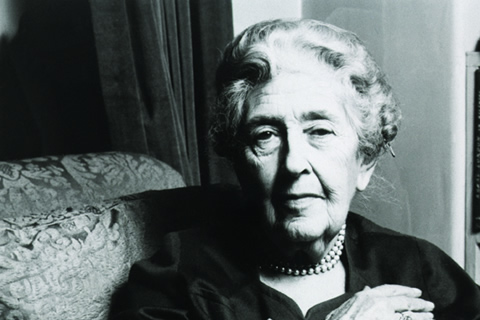As a writer, I am often haunted by the question: just how original are my words?
Since the written word was devised, thousands upon billions of sentences have been recorded. The number is no doubt so staggering, that an estimate of the true number of words ever written would defy statistical measurement. Is it not likely that a great many of my published words are similar, or even identical, to another’s? The question is not trivial: I make a living with words, and define myself, professionally and personally, as a writer. If my words aren’t truly original, just what is my trade worth?
Recently, I wrote a feature for U of T Magazine about academic integrity and plagiarism at U of T, and controversy over the software Turnitin.com. The website was created in the mid-1990s to catch students who cheat by methodically comparing a student’s written work against millions of previously submitted essays and more than five billion web pages. Although many professors say the website is a useful tool for catching plagiarists, others find it belittling to students. Would professors appreciate having their own work scrutinized in this way? Would Turnitin.com indicate that some of their words were unoriginal? It’s a thought-provoking question.
I wondered how well my own essays would stand up to Turnitin.com’s analysis. Would it flag my work as unoriginal? And just how would it make me feel to see my words compared to billions of other pieces of work, from random web pages to polished academic papers?
I decided to scan a paper that meant more to me than anything else I had written: an English essay comparing a poem by a little-known poet of the romantic era, John Thelwall, to the poetry of his famous friends and contemporaries, William Wordsworth and Samuel Taylor Coleridge. I wrote the essay for a third-year course on romantic poetry and prose, which I took with Professor Heather Jackson at University College.
The course was, far and away, my favourite English literature course. I love good poetry and positively adore romantic poetry. I put an incredible amount of time and effort into the paper, not just because I wanted to get a good grade, but because I wanted to be able to say something meaningful and original about the poems. I never would have thought for a second about plagiarizing; I wanted to take pride in my work.
In fact, I had no idea whether my thesis for this paper was original. Thelwall was an obscure poet, and I couldn’t find any academic papers on the poem I’d chosen to write about. I asked Prof. Jackson if I could write an essay based entirely upon my own interpretations of the poetry, without any reference to the academic literature. She made the allowance, and I crafted 3,800 words, which I hoped would be poignant and original. She gave me an A+, which I take great pride in to this day.
Before sending my paper through Turnitin.com, I spoke with Prof. Jackson again. I wondered if the essay had really been as original as I thought. Had she seen any like it? “I had never seen any student come up with this thesis regarding Thelwall,” she said, though noting that she had only assigned John Thelwall’s “Effusion III” twice in her teaching career. I had posited that Thelwall’s view of the relationship between “nature” and the poet is very similar to both Coleridge’s and Wordsworth’s, but more similar to Wordsworth’s.
“But,” she added, “I wouldn’t use the word ‘original’ to describe the position you took regarding Coleridge and Wordsworth,” which was that they seem to have differing views on how ‘nature’ affects the mind of a poet, but they actually have very similar stances when you examine the poetry closely. “You were in agreement with many people who have made similar contrasts and who came to the same conclusion you did.”
Well, I suppose that was to be expected: these are two of the most widely read poets in English history, and the poems that I had explored were written in conjunction with each other.
Turnitin.com assigned my paper a score of 18 per cent – meaning that 18% of the content was deemed similar to another author’s words. This is classified as “green,” which placed it in the highest category of originality (over red and yellow). Of the 18 per cent that had been flagged as similar to another author’s, virtually every single sentence or phrase was a direct quote from the poetry.
There were a couple of minor exceptions. In this sentence: ‘What is somewhat particular to romantic poetry, compared to previous centuries of English poets, is the consideration of the relationship between the natural world and the poet himself – not simply how nature affects one’s mood, but how nature affects one’s mind, one’s emotional sensibilities, one’s imagination, one’s morals.’ Turnitin found a similar phrase, “how nature affect’s one’s mood, but how nature affects one’s” in a paper submitted to a Bellbrook High School in 2006. I can live with that.
What did this experience mean to me? Well, for one, I can continue to take pride in this piece of work. Though my conclusions regarding Coleridge and Wordsworth may not have been astoundingly original, neither are the conclusions that most students or even seasoned academics can come to when examining popular literature. Even so, my words I can claim whole-heartedly as my own. “There is no such thing as an original idea,” a U of T professor had once commented to me, “only original words.”
In a way, this experiment is a vindication for proponents of Turnitin.com. By comparing my work against billions of other pieces of prose I was left feeling that my words were even more unique – not less.





No Responses to “ Testing Turnitin ”
I just put a paper through Turnitin and it came out at 18%. But what does that really mean? My quotes and paraprhases were all cited correctly. Does it mean that 18% of my paper was quotes? Or that 18% of it was similar to other papers that may or may not have been sourced?
Hey Zoe, just wanted to say I'm tickled that you are so fond of Thelwall (and of Heather Jackson's class).
I'm an ex-student of Heather's, and a prof who uses turnitin, for better or worse.
But mostly I'm a specialist on Thelwall, and a passionate fan, more like obsessive, and so I was taken by your piece in the UofT mag. And if you are ever wanting to talk more about Thelwall with someone (esp his poetry, which is what I specialize in, having discovered the mysterious missing Derby manuscript of his poetry), I'd love to reciprocate (BTW, there's a Facebook group on Thelwall--check it out)
Judith Thompson
Dalhousie U